-
 Bitcoin
Bitcoin $115200
0.74% -
 Ethereum
Ethereum $3730
6.71% -
 XRP
XRP $3.075
4.85% -
 Tether USDt
Tether USDt $1.000
0.01% -
 BNB
BNB $766.1
1.85% -
 Solana
Solana $168.7
4.22% -
 USDC
USDC $0.9999
0.00% -
 Dogecoin
Dogecoin $0.2097
5.42% -
 TRON
TRON $0.3327
1.72% -
 Cardano
Cardano $0.7547
4.04% -
 Stellar
Stellar $0.4156
4.83% -
 Hyperliquid
Hyperliquid $38.77
1.37% -
 Sui
Sui $3.589
4.15% -
 Chainlink
Chainlink $17.09
4.86% -
 Bitcoin Cash
Bitcoin Cash $574.6
5.82% -
 Hedera
Hedera $0.2523
1.95% -
 Avalanche
Avalanche $23.01
7.68% -
 Ethena USDe
Ethena USDe $1.001
-0.02% -
 Litecoin
Litecoin $120.4
9.83% -
 Toncoin
Toncoin $3.426
-4.06% -
 UNUS SED LEO
UNUS SED LEO $8.918
-0.53% -
 Shiba Inu
Shiba Inu $0.00001250
2.49% -
 Uniswap
Uniswap $9.956
8.52% -
 Polkadot
Polkadot $3.724
3.26% -
 Monero
Monero $304.7
0.19% -
 Dai
Dai $0.9999
-0.01% -
 Bitget Token
Bitget Token $4.394
1.48% -
 Cronos
Cronos $0.1400
6.96% -
 Pepe
Pepe $0.00001076
2.83% -
 Aave
Aave $268.4
3.45%
How does NFT Ticketing change the ticketing industry?
NFT ticketing uses blockchain for verifiable, unique tickets, eliminating counterfeits and streamlining sales via smart contracts. This enables secondary market trading with built-in royalties, while programmable NFTs offer enhanced event experiences, though scalability and regulation remain challenges.
Mar 01, 2025 at 12:42 pm
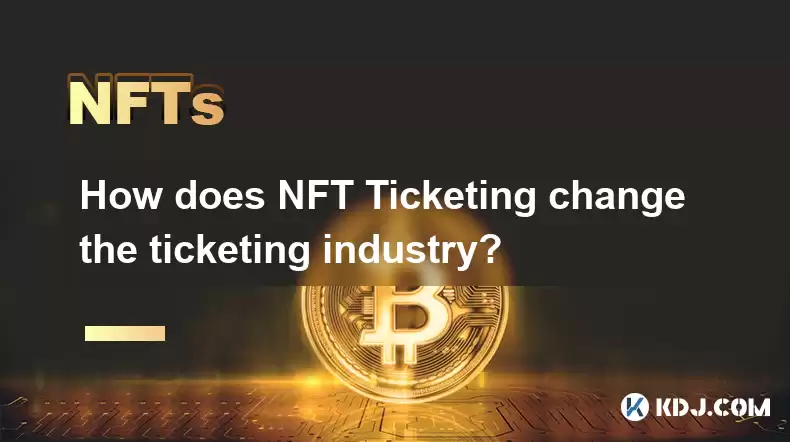
Key Points:
- NFTs offer verifiable ownership and scarcity, combating counterfeit tickets.
- Smart contracts automate ticket sales and transfers, reducing intermediaries.
- NFTs enable secondary market trading with built-in royalties for creators and venues.
- Programmable NFTs allow for unique experiences and benefits beyond entry.
- Challenges remain in user experience, scalability, and regulatory uncertainty.
How does NFT Ticketing Change the Ticketing Industry?
The ticketing industry, long plagued by fraud, high fees, and cumbersome processes, is undergoing a potential revolution thanks to Non-Fungible Tokens (NFTs). NFT ticketing leverages blockchain technology to create unique, verifiable digital tickets, addressing many of the traditional industry's pain points. The shift promises a more transparent, efficient, and potentially profitable ecosystem for all stakeholders.
One of the most significant advantages of NFT ticketing is its inherent ability to combat counterfeiting. Each ticket exists as a unique NFT on the blockchain, making duplication impossible. This verifiable ownership ensures that only legitimate ticket holders can gain entry to an event, eliminating the black market for forged tickets and protecting both the event organizers and genuine attendees.
Traditional ticketing systems rely on multiple intermediaries, leading to inflated fees and complex processes. NFT ticketing streamlines this by utilizing smart contracts. These self-executing contracts automate ticket sales, transfers, and even access control, reducing reliance on third-party platforms and minimizing associated costs. This allows for direct sales from organizers to fans, fostering a more direct and transparent relationship.
The secondary market for tickets is another area where NFTs are making a significant impact. Unlike traditional tickets, which often lose value or become untraceable once resold, NFT tickets can be easily traded on decentralized marketplaces. Crucially, smart contracts can be programmed to automatically distribute royalties to creators, artists, or venues with each resale, generating ongoing revenue streams.
Beyond simple entry, NFTs can unlock a range of additional benefits and experiences. Programmable NFTs can grant access to exclusive content, merchandise, VIP experiences, or even allow for ticket upgrades or resales at a predetermined price. This allows event organizers to create tiered experiences and increase engagement with attendees.
The transition to NFT ticketing isn't without its challenges. The current user experience can be complex for those unfamiliar with cryptocurrency and blockchain technology. Scalability is also a concern; handling large-scale events with millions of NFT tickets requires robust infrastructure. Furthermore, the regulatory landscape surrounding NFTs and digital assets remains unclear in many jurisdictions, creating uncertainty for both organizers and consumers.
Implementing NFT Ticketing: A Step-by-Step Guide (For Organizers):
- Choose a Blockchain: Select a blockchain suitable for your needs, considering factors like transaction speed, cost, and scalability. Ethereum and Polygon are popular choices.
- Develop Smart Contracts: Create smart contracts that govern ticket creation, sales, transfers, and access control. This requires expertise in blockchain development.
- Design the NFT: Create visually appealing and functional NFTs representing the tickets. This may involve collaboration with artists or designers.
- Establish a Marketplace: Decide whether to use an existing NFT marketplace or build a custom platform for ticket sales and secondary trading.
- Integrate with Access Control: Connect your NFT ticketing system with your venue's entry system to verify ticket authenticity.
- Market and Educate: Communicate the benefits of NFT ticketing to your audience, addressing potential concerns and providing clear instructions.
Addressing User Concerns:
- Technical Complexity: Many people are unfamiliar with cryptocurrencies and NFTs. Educational resources and user-friendly interfaces are crucial for adoption.
- Security Concerns: Users need reassurance that their NFT tickets are secure and protected from theft or loss. Strong security measures and clear guidelines are essential.
- Cost and Accessibility: The cost of acquiring and using NFTs, including gas fees, could be a barrier for some attendees. Exploring cost-effective solutions is vital.
- Environmental Impact: Some blockchains have higher energy consumption than others. Choosing eco-friendly blockchains and implementing carbon offsetting strategies are important considerations.
Common Questions & Answers:
Q: Are NFT tickets more expensive than traditional tickets? A: The price of an NFT ticket depends on several factors, including demand, the event itself, and any additional benefits included. It's not inherently more or less expensive than a traditional ticket.
Q: What happens if I lose my NFT ticket? A: The ownership of the NFT is recorded on the blockchain, so the ticket itself can't be "lost." However, if you lose access to your digital wallet, you may lose access to your ticket. Securely storing your private keys is crucial.
Q: Can I resell my NFT ticket? A: Yes, NFT tickets can be resold on secondary marketplaces, often with built-in royalties for the original issuer. The ability to resell depends on how the smart contract is programmed.
Q: Are NFT tickets susceptible to hacking? A: While blockchain technology is generally secure, smart contracts can have vulnerabilities. Thorough auditing and security measures are essential to minimize risks.
Q: What if the event is canceled? A: Smart contracts can be programmed to handle refunds or alternative arrangements in case of cancellations, offering more flexibility than traditional tickets.
Q: How are royalties paid on NFT ticket resales? A: Royalties are automatically distributed to the original issuer (e.g., event organizer, artist) through the smart contract whenever the NFT is resold on a compatible marketplace. The percentage of the royalty is predetermined in the contract.
Q: What regulations apply to NFT ticketing? A: The regulatory landscape for NFTs is still evolving. Organizers should consult legal professionals to ensure compliance with relevant laws in their jurisdictions.
Q: What are the environmental implications of using NFTs for ticketing? A: The energy consumption of blockchain networks varies significantly. Choosing energy-efficient blockchains and exploring carbon offsetting mechanisms are vital for minimizing the environmental impact.
Disclaimer:info@kdj.com
The information provided is not trading advice. kdj.com does not assume any responsibility for any investments made based on the information provided in this article. Cryptocurrencies are highly volatile and it is highly recommended that you invest with caution after thorough research!
If you believe that the content used on this website infringes your copyright, please contact us immediately (info@kdj.com) and we will delete it promptly.
- Cryptocurrency, Altcoins, and Profit Potential: Navigating the Wild West
- 2025-08-04 14:50:11
- Blue Gold & Crypto: Investing Disruption in Precious Metals
- 2025-08-04 14:30:11
- Japan, Metaplanet, and Bitcoin Acquisition: A New Era of Corporate Treasury?
- 2025-08-04 14:30:11
- Coinbase's Buy Rating & Bitcoin's Bold Future: A Canaccord Genuity Perspective
- 2025-08-04 14:50:11
- Coinbase's Buy Rating Maintained by Rosenblatt Securities: A Deep Dive
- 2025-08-04 14:55:11
- Cryptos, Strategic Choices, High Returns: Navigating the Meme Coin Mania
- 2025-08-04 14:55:11
Related knowledge
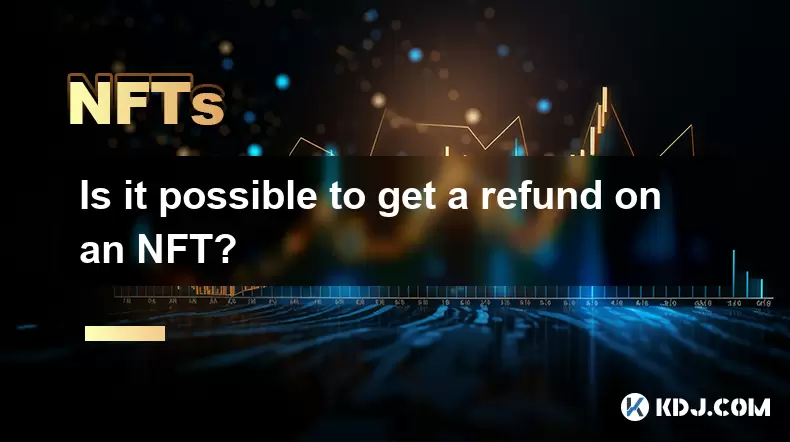
Is it possible to get a refund on an NFT?
Jul 21,2025 at 08:35pm
Understanding NFT Transactions and RefundsWhen you purchase an NFT (Non-Fungible Token), the transaction is typically recorded on a blockchain, making...
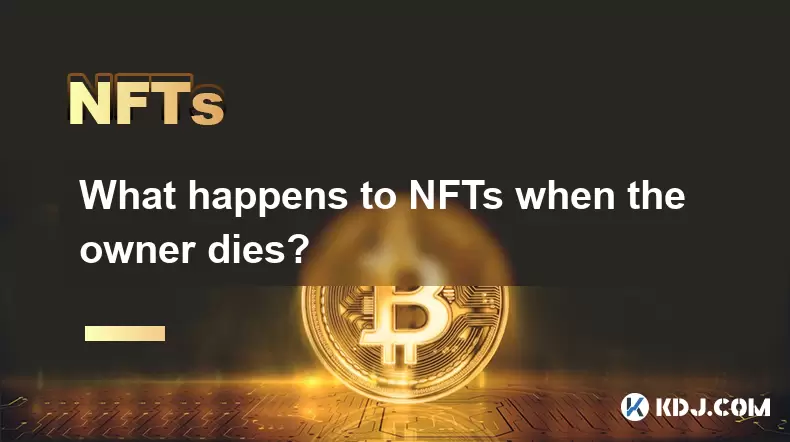
What happens to NFTs when the owner dies?
Jul 22,2025 at 02:43pm
Legal Ownership and Digital AssetsWhen an individual owns NFTs, the question of what happens to these assets upon their death is a pressing one. NFTs ...
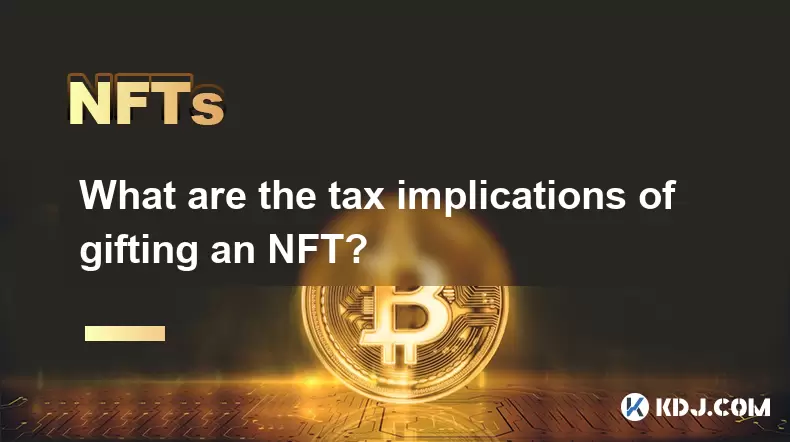
What are the tax implications of gifting an NFT?
Jul 19,2025 at 04:21am
Understanding the Basics of NFT GiftingGifting a Non-Fungible Token (NFT) involves transferring ownership from one individual to another without recei...
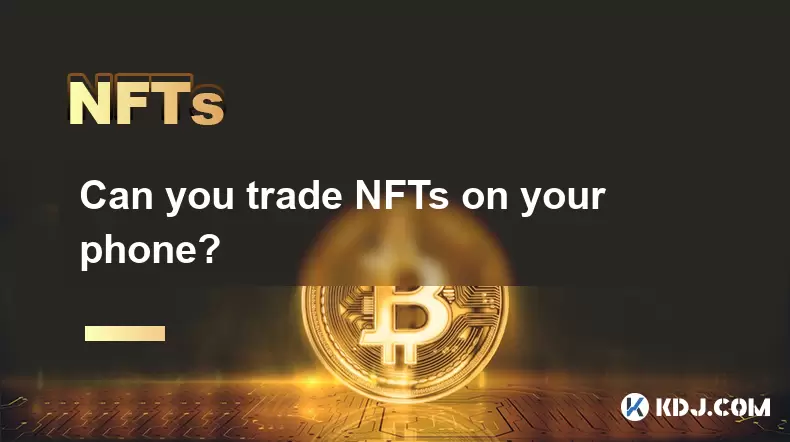
Can you trade NFTs on your phone?
Jul 18,2025 at 04:29am
Trading NFTs on Mobile DevicesYes, you can trade NFTs on your phone, and the process has become increasingly streamlined thanks to a variety of mobile...
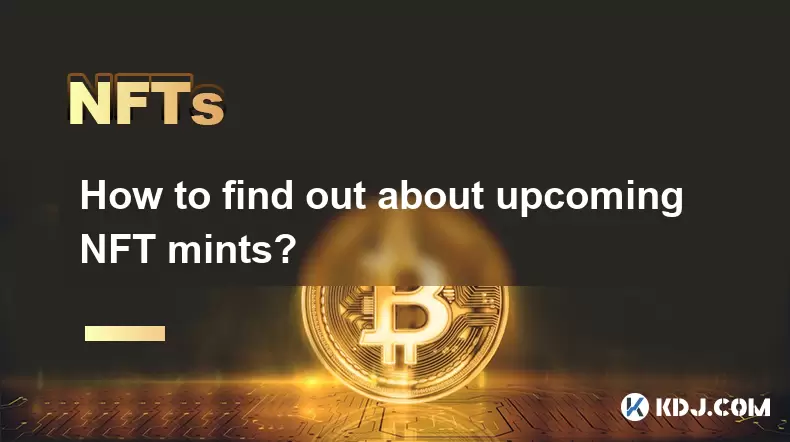
How to find out about upcoming NFT mints?
Jul 18,2025 at 11:50am
Exploring NFT Minting OpportunitiesUnderstanding the landscape of upcoming NFT mints is crucial for collectors, investors, and creators who wish to st...
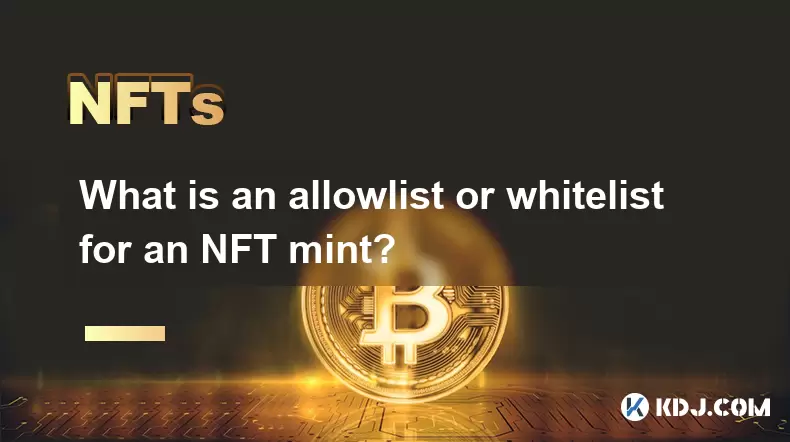
What is an allowlist or whitelist for an NFT mint?
Jul 20,2025 at 07:14pm
Understanding the Concept of an Allowlist for NFT MintingAn allowlist, also commonly referred to as a whitelist, is a mechanism used in the NFT mintin...

Is it possible to get a refund on an NFT?
Jul 21,2025 at 08:35pm
Understanding NFT Transactions and RefundsWhen you purchase an NFT (Non-Fungible Token), the transaction is typically recorded on a blockchain, making...

What happens to NFTs when the owner dies?
Jul 22,2025 at 02:43pm
Legal Ownership and Digital AssetsWhen an individual owns NFTs, the question of what happens to these assets upon their death is a pressing one. NFTs ...

What are the tax implications of gifting an NFT?
Jul 19,2025 at 04:21am
Understanding the Basics of NFT GiftingGifting a Non-Fungible Token (NFT) involves transferring ownership from one individual to another without recei...

Can you trade NFTs on your phone?
Jul 18,2025 at 04:29am
Trading NFTs on Mobile DevicesYes, you can trade NFTs on your phone, and the process has become increasingly streamlined thanks to a variety of mobile...

How to find out about upcoming NFT mints?
Jul 18,2025 at 11:50am
Exploring NFT Minting OpportunitiesUnderstanding the landscape of upcoming NFT mints is crucial for collectors, investors, and creators who wish to st...

What is an allowlist or whitelist for an NFT mint?
Jul 20,2025 at 07:14pm
Understanding the Concept of an Allowlist for NFT MintingAn allowlist, also commonly referred to as a whitelist, is a mechanism used in the NFT mintin...
See all articles

























































































